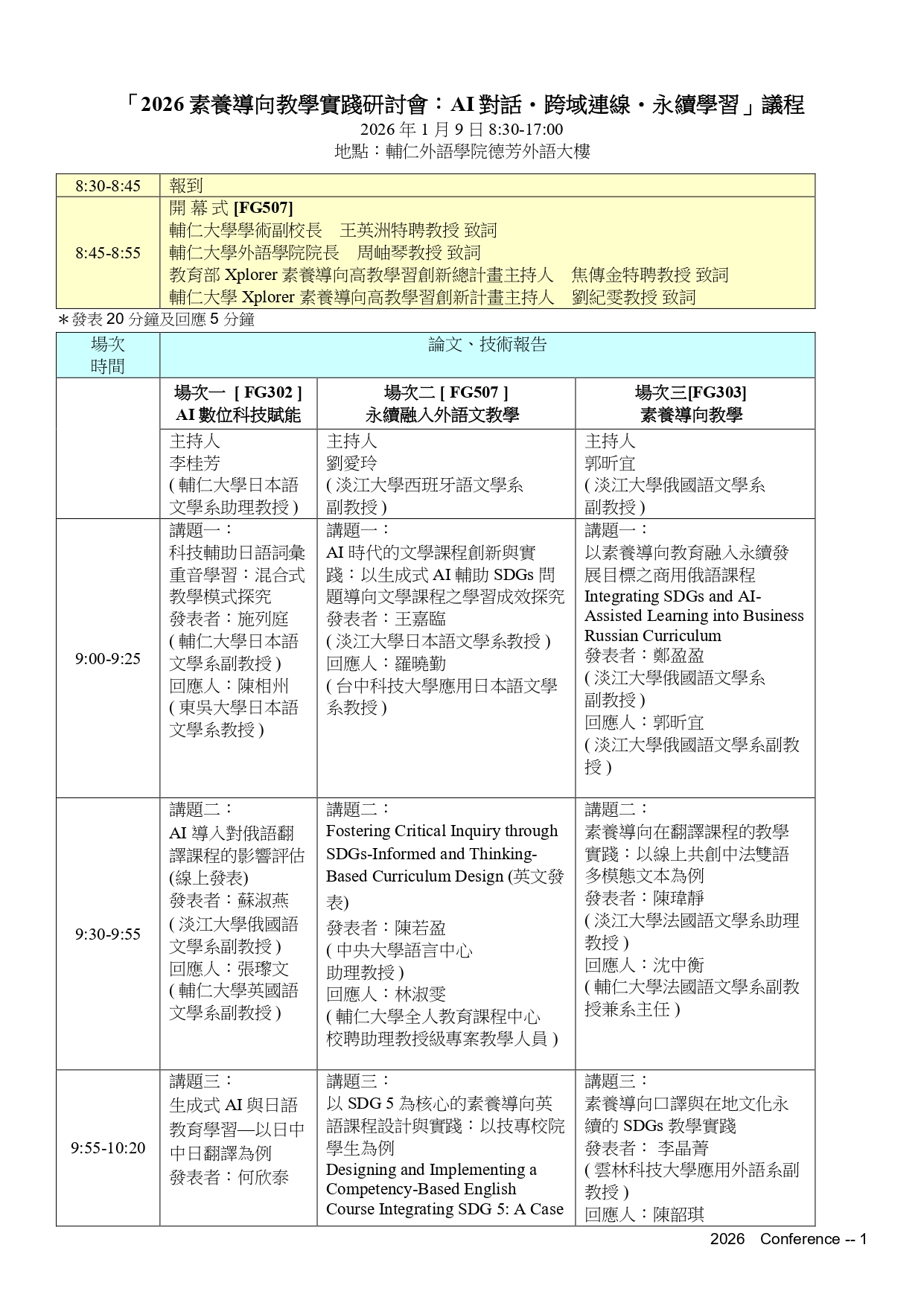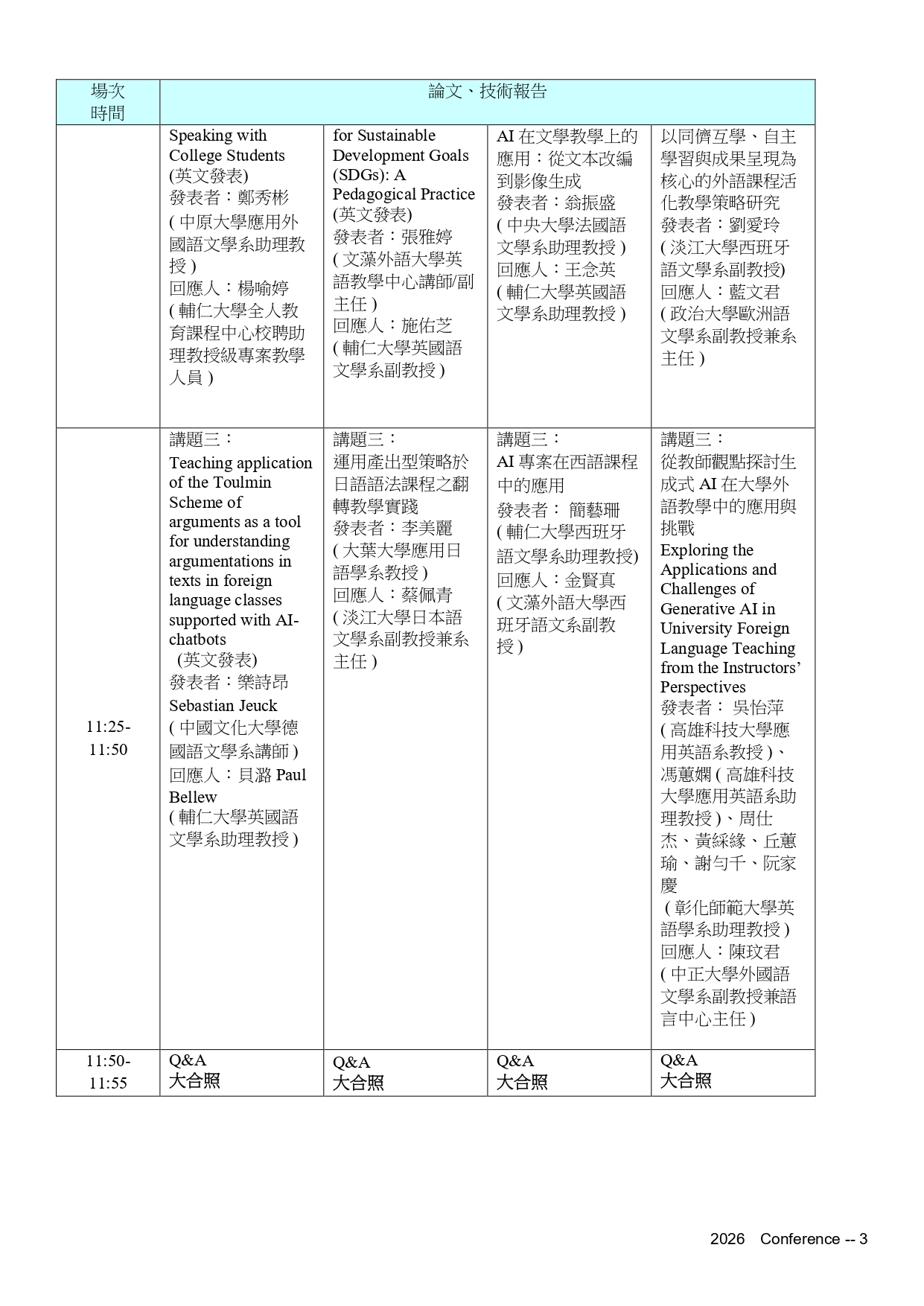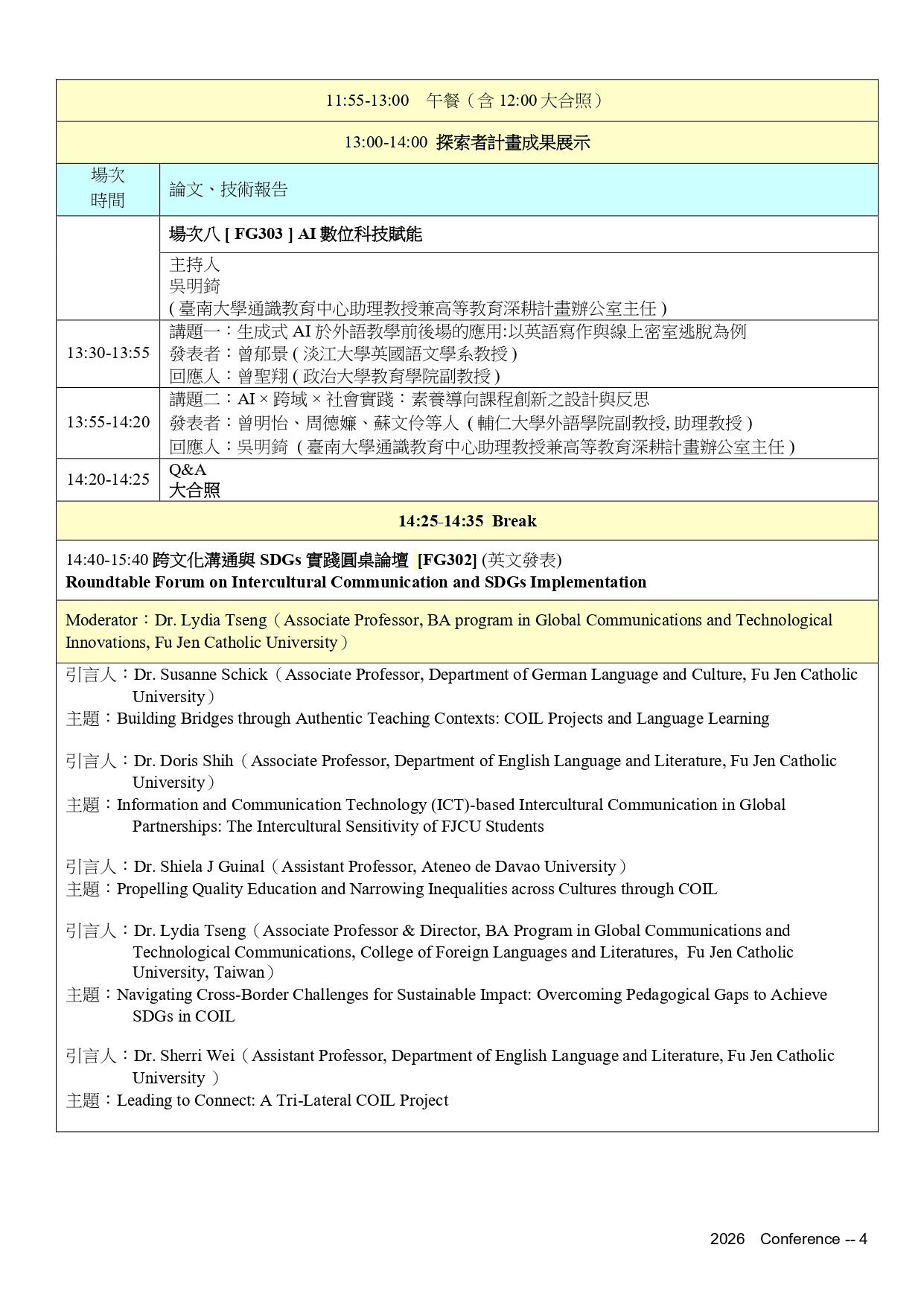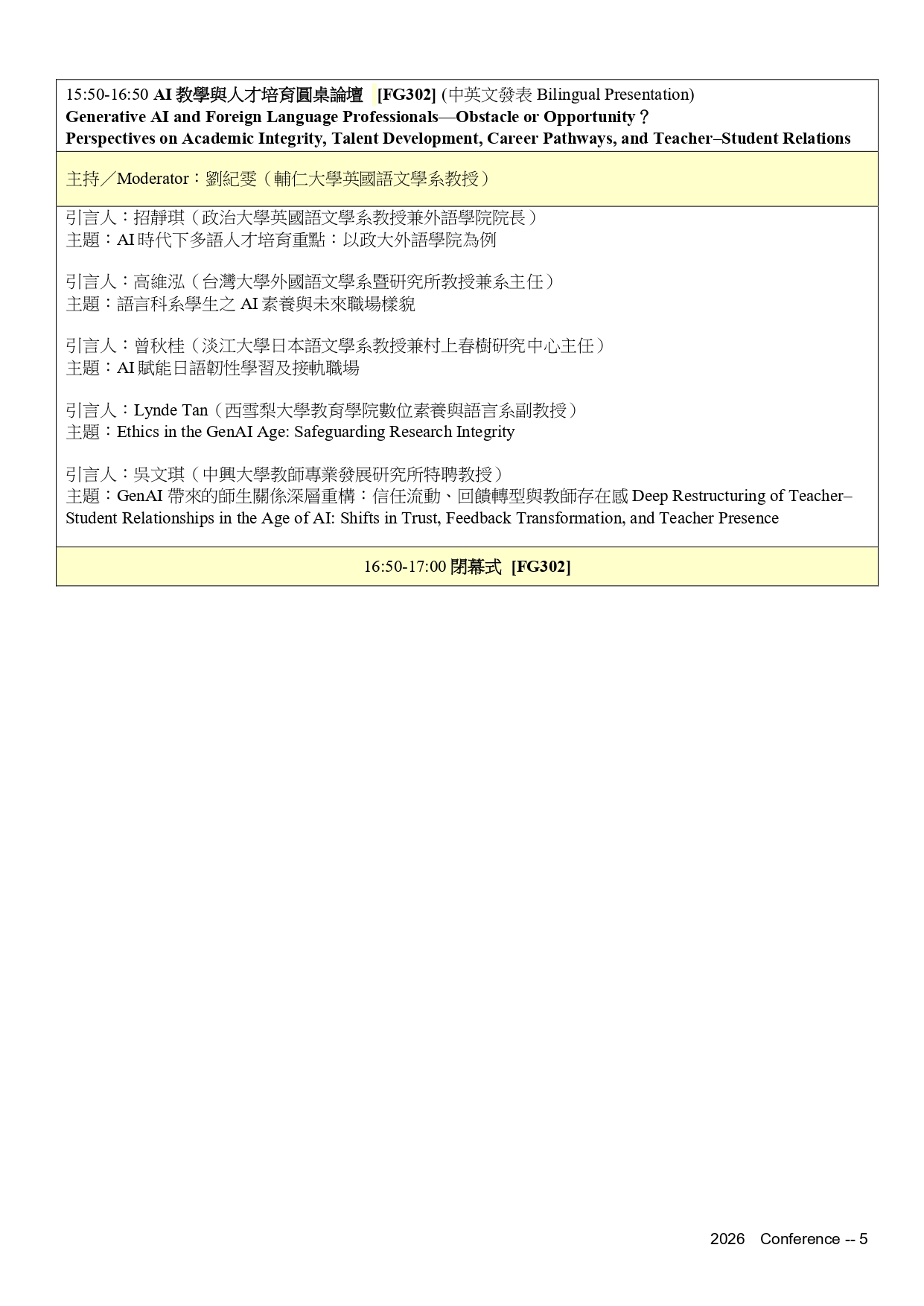跨域連線・AI 對話・永續學習:2026 素養導向教學研討會
暨第二屆探索者計畫成果發表
一、2026 年因應 108 素養導向新課綱、AI 科技崛起,以及國際紊亂的局勢,邀請淡江大學外語學院合辦「跨域連線・AI 對話・永續學習:2026 素養導向教學研討會暨第二屆探索者計畫成果發表」。
二、本次研討會擬於 2026年01月09日 (星期五),上午八時三十分至下午五時,假輔仁大學外語學院德芳外語大樓舉行,敬請鼓勵所屬教師踴躍發表。
三、發表論文相關事項如下:
(一) 素養導向教學研討會徵稿啟示中文及英文版 (附件一)
(二) 發表摘要表格中文及英文版 (附件二)
(三) 通知摘要接受日期:延長至 2025 年 11 月 17 日
(四) 論文或簡報檔 PPT 截止繳交日期:2025 年 12 月 30 日
(五) 論文形式:論文或技術報告
1. 論文撰寫使用語言:中文或英文,至少中文 2000 字或英文 1000 字。
(六) 口頭報告:簡報檔 PPT 初稿僅提供給回應人,不會在研討會網站上公告
1. 簡報檔內容:
--必備:教學動機與目的、教學方法、研究方法、教學成果與討論
--選備:理論架構與文獻探討
2. 報告語言:中文或英文
3. 報告長度:每篇論文 25 分鐘(發表 20 分鐘及回應 5 分鐘)
(七) 發表摘要、論文及簡報檔 PPT 請寄至輔大外語學院研討會電子郵件信箱:CFLLconference@gmail.com ,檔名與主旨請註明「2026 素養導向教學研討會論文摘要_OOO (姓名) 老師」。
(八) 聯絡人:輔仁大學外語學院 Xplorer 計畫專案經理 蕭昱綺 Lola,
連絡電話:02-29056247,電子信箱:hsiaolola@gmail.com
⭐️敬邀報名觀摩,蒞臨交流指教!
報名時間:即日起至 2025/12/31 中午 12:00,未於期限內填寫表單者當日無提供餐點及校內停車申請。
🟠報名表單:https://forms.gle/vvSZ2fmYqgX9LNxeA
徵稿啟示(附件一):檔案
摘要表格(附件二):檔案
研討會議程(20260106 更新):檔案

_page%2D0002.jpg)



%202026%E7%B4%A0%E9%A4%8A%E5%B0%8E%E5%90%91%E6%95%99%E5%AD%B8%E5%9C%8B%E9%9A%9B%E7%A0%94%E8%A8%8E%E6%9C%83%E6%9A%A8%E7%AC%AC%E4%BA%8C%E5%B1%86%E6%8E%A2%E7%B4%A2%E8%80%85%E8%A8%88%E7%95%AB%E6%88%90%E6%9E%9C%E7%99%BC%E8%A1%A8(0109)%E5%BB%B6%E9%95%B7%E5%BE%B5%E7%A8%BF.png)
--------------------------------------
往期資訊:
2020 教學實踐研討會:議程。
